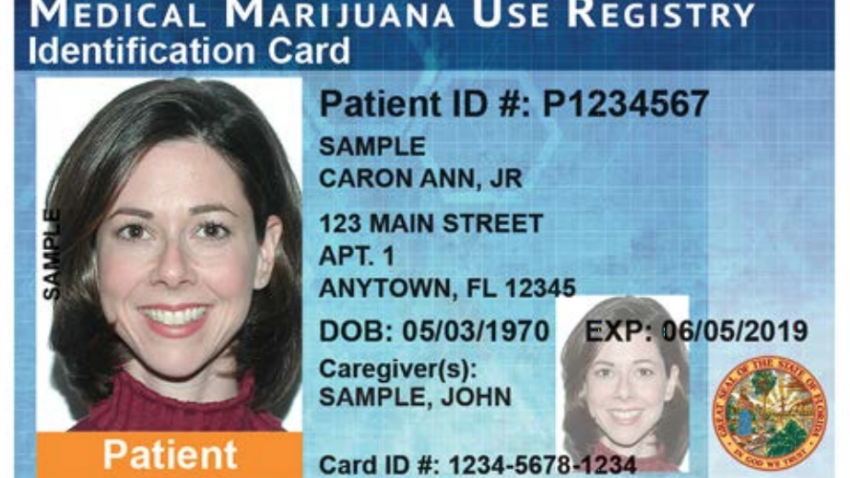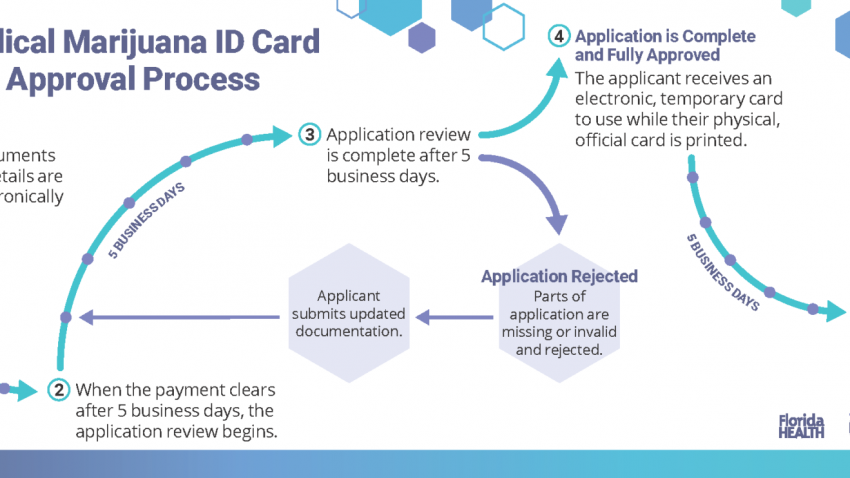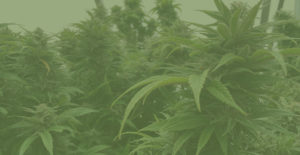- Cancer.
- Epilepsy.
- HIV/AIDS.
- Glaucoma.
- Post-Traumatic Stress Disorder (PTSD).
- Amyotrophic Lateral Sclerosis (ALS).
- Parkinson’s Disease.
- Crohn’s Disease.
- Chronic Pain.
- Anxiety.
- Depression.
- Arthritis.
- Much more.
- Trulieve
- AltMed Florida (MuV)
- VidaCann
- Columbia Care Florida
- Curaleaf
- GrowHealthy
- GTI (Rise Dispensaries)
- Liberty Health Sciences
- Surterra Wellness
Lakeland Marijuana Doctors & ID Cards – All Natural MD
1102 Florida Ave S Suite 102 Lakeland, FL 33803 (800) 250-6737 Search GET DIRECTIONS Related Articles:- All Natural Medical Solutions – Lakeland Florida Marijuana Doctors Now Seeing Patients
- All Natural Medical Opens Medical Marijuana Clinic in Lakeland Florida
- All Natural Marijuana Doctors Is Open in Lakeland Florida
- How To Get A Medical Marijuana Card in Lakeland Florida
- Top 3 Strains of Medical Marijuana for PTSD Lakeland Florida
- Get A Medical Marijuana Card in Lakeland – All Natural MD
There are 2 separate cost associated with obtaining and keeping your medical marijuana prescriptions active:
- Your medical marijuana doctors certification – You’re required to see the Doctor to renew you script every 210 days. This is called your re-certification.
- Your medical marijuana card – Your medical marijuana card is a separate ordeal. You have to get and renew you medical card online with the mmuregistry website once a year. The cost is $75.00 plus a 2.75 convenience fee with totals $77.75.

If you’re unhappy with your current medical marijuana physician in anyway, give All Natural MD a call (800) 250-6737. We can help you get back in the game in no time.
If you need assistance with getting your medical marijuana card renew with the State, we can help. If you need help with dosages or where to find the best medical marijuana dispensary in Florida, we can help with that as well. Get started on your medical marijuana doctor card in Florida today.
Please note if your Doctor does not provide you with a FULL 210 day, 7 month, 30 week certification, orders, prescription for medical marijuana, you are not getting your monies worth. At All Natural MD, we give you the State max on your certification orders and the amount of marijuana you c an purchase. You can expect to get 2.5 ounces of Flower every 35 days, 300-500 mg per day for all other routes of administration such as: Inhalation (Vape), Oral (Capsules, Tincture Drops Under the Tongue, Lozenges and more). You can also access edibles, creams, patches, and whatever else the dispensaries have to offer. We are Florida’s top medical marijuana doctor in Florida since October of 2016. Let us show you why!
What is Glaucoma:
The term Glaucoma is a medical condition that damages the optic nerve of our eye. It is often connected to the buildup of intraocular pressure inside the eye. Glaucoma is basically a hereditary disease, so it runs in families. The enhanced or increased pressure in the eye, called intraocular pressure, can massively harm the optic nerve, which sends and processes images to our brain. If the optic nerve’s damage worsens, Glaucoma can cause permanent vision loss or even absolute blindness within a few years afterward.
Types of Glaucoma
There are basically five main kinds of Glaucoma. Angle-closure Glaucoma is more common in Asian societies. The drainage space between the cornea and the iris becomes too narrow or constrict, which leads to the failure of the eye drainage system. This can lead to a sudden buildup of intraocular pressure in the eye. Open-angle Glaucoma.Open-angle Glaucoma is the most preponderant type of Glaucoma. It is also known as wide-angle Glaucoma in medical terms. In this type of Glaucoma, the drainage structure in the eye, which is called the trabecular meshwork looks good says on Florida medical marijuana physicians. But there is some disturbance in the flow of fluid. which leads to accumulation of fluid and hence increased IOP (intraocular pressure)
.
- Pigmentary Glaucoma
- Normal-tension Glaucoma.
- Secondary Glaucoma.
Causes of Glaucoma:
The fluid inside the eye, which is called aqueous humor, usually flows out of the eye through a mesh-like trabecular network or channel. The blockage of this network or channel leads to the accumulation of aqueous humor. Other types of Glaucoma can result from a severe eye infection, chemical or blunt injury to the eye, inflammatory conditions, and blocked blood vessels inside your eye.
Risk factors for Glaucoma:
Glaucoma commonly occurs in adults over 45, but children, young adults, and even infants can suffer from it. The main risk factors for Glaucoma are as follow:
- Age over 45
- diabetes
- Have a family history of Glaucoma
- High blood pressure
- cardiovascular disease
- sickle cell anemia
- Eye infection
- Are nearsighted or farsighted
- injury to the eye
- High intraocular pressure
- Nearsightedness or farsightedness
Signs and Symptoms of Glaucoma
The symptoms in Glaucoma develop late in the disease. That’s why Glaucoma is often called or referred to as the “sneak thief of vision.” The main symptom and sign is usually a loss of peripheral or side vision says a group of Lakeland medical marijuana physicians.
- Eye pain
- Redness in your eye
- Vision loss
- Upset stomach or vomiting
- An eye that looks hazy
- Headache
- Anxiety and stress
Role of Marijuana in the treatment of Glaucoma:
Marijuana, which is also widely known as Cannabis or known as cannabidiol, is basically a psychoactive drug derived from the Cannabis plant and is used primarily for medical purposes. It has been used to treat various pathologies such as glaucoma, cancer, and autoimmune disease. Different strains of marijuana used in the treatment of various pathologies are as follow:
- Acapulco Gold
- Maui Wowie
- Afghan Kush
- Super Silver Haze
- Pineapple Express
- Harvest Starter Kit
- Purple Kush
- Bubba Kush
- Sour Diesel
- Granddaddy Purple
Strains of Marijuana used in Glaucoma treatment:
These five strains are most widely used in the treatment of glaucoma.
Sativa Marijuana Strain (hash plant haze)
This strain of marijuana is known to lower eye pressure. It also assists in relieving severe pain, which is a preponderant symptom of glaucoma disease.
Indica marijuana strain (Rollex OG Kush)
This strain is pretty much effective in treating and reducing fatigue and headaches, which are the two most common symptoms of glaucoma disease.
Hybrid Strain (Mad Dawg)
It is a hybrid strain that is used to treat migraines and headaches. As glaucoma also causes headaches, so this hybrid strain can be used to treat glaucoma-induced headaches effectively
Sativa Marijuana Strain (Santa Sativa)
Sativa Marijuana Strain is a strain that effectively reduces nausea, can be used as an analgesic, and can treat or mitigate anorexia effectively. Due to its taste and practical actions, it is used widely for glaucoma disease
Hybrid Marijuana Strain (LAPD)
LAPD is a hybrid strain that is used as an anxiolytic. It brings sensations of calmness and can reduce severe anxiety and stress because of glaucoma. Get Started Here.
References:
- https://bjo.bmj.com/content/88/5/708.short
- https://journals.lww.com/co-ophthalmology/Abstract/2016/03000/Cannabinoids_for_treatment_of_glaucoma.10.aspx
- https://books.google.com/books?hl=en&lr=&id=rYwQk3e77vYC&oi=fnd&pg=PA94&dq=strain+is+pretty+much+effective+in+treating+marijuana+glaucoma&ots=oPUoVgrbwI&sig=FmEB_zVZ7DJDvTKnBT7hRYZcIEA#v=onepage&q&f=false
- https://www.sciencedirect.com/science/article/abs/pii/S0163725802002590
- https://jamanetwork.com/journals/jama/article-abstract/1869215




